The way you make me feel
‘I wish I wasn’t so dark, I wish I had a size zero figure like Kareena.’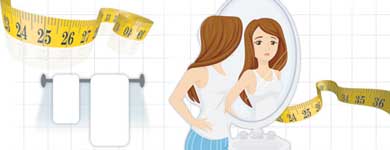
‘I wish my abs were like Salman Khan’s.’
‘I wish I had coloured eyes and brown hair.’
‘I wish I didn’t look like the way I do!’
These are some of the common phrases uttered by people of all ages, races and religions nowadays. Are you one of those putting yourself down? If so, you’re not alone. We live in a time where the way we look has become much more important to us than any other achievement. Even the intellectuals need some sort of assurance regarding their appearance and suffer from inferiority complex if they don’t meet the beauty standards set by the world. In earlier times, women were expected to look a certain way but, unfortunately, this trend has now trickled down to men as well. Basically, no matter how we appear, we are always dissatisfied since we can’t compare ourselves with stars such as David Beckham or Selena Gomez. Either we are too thin, not healthy enough, not pretty enough, too pretty, too tall or too short. The bottom line is we always feel like we need to continue working on our image. Yes, gone are the days when everyone was hundred percent happy with how they looked. However, this problem is not impossible to address and fix. First and foremost, an initiative should be taken to make sure the young people understand how irrelevant appearance is in one’s life. Secondly, they need to know that the perfection achieved by celebrities is not always real and more often than not they resort to photoshop and plastic surgery. Last but not the least, everyone should be taught about body image and what affects our perception of it. Read on to find out more about it.
What is body image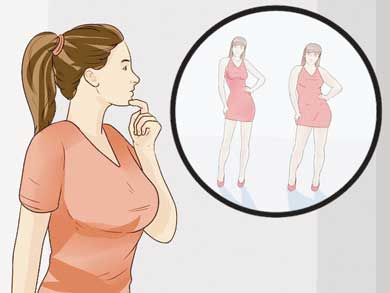
Body image is a person’s perception of the attractiveness of their own body. It is how you see yourself when you look in the mirror or when you picture yourself in your mind. The term ‘body image’ was first coined by the Austrian neurologist and psychoanalyst Paul Schilder in his book The Image and Appearance of the Human Body (1935).
The concept of body image is used in a number of disciplines, including psychology, medicine, psychiatry, psychoanalysis, philosophy and cultural and feminist studies.
A person’s body image is their sense of their own physical appearance, usually in relation to others or in relation to some cultural “ideal”. However, the most important point to ponder upon here is that a person’s perception of their appearance can be different from how others actually perceive them, and this perception can be either negative or positive.
Negative body image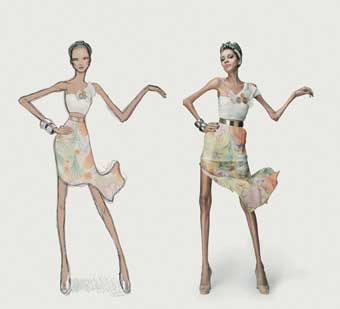
Having a negative body image means that you have a distorted perception of your body shape. Most importantly, you are likely to be convinced that other people are attractive and that your body size or shape is a sign of personal failure. This further leads to feelings of self-consciousness and shame and feelings of self-hate. Often, people who think that their body image is not perfect try to alter their bodies in some way, such as by dieting or undergoing cosmetic surgery. People with a negative body image also suffer from feelings of depression, isolation, low self-esteem, and obsession with weight loss. They are more likely to have eating disorders such as anorexia and bulimia.
A 2007 report by the American Psychological Association found that a culture-wide objectification of girls and women was contributing to increased female anxiety associated with body image.
What influences body image
Puberty and development
Some people struggle with their self-esteem and body image when they begin puberty because it’s a time when the body goes through many changes. These changes, combined with the desire to be accepted by friends, make us compare ourselves with others. However, the problem with this kind of thinking is that everyone grows and develops differently. For instance, at the age of 15, you can’t expect your body to be like that of the model Gissele. It’s not possible no matter how much time you spend dieting and exercising. One just needs to realize that the body’s shape and bones change with age.
Media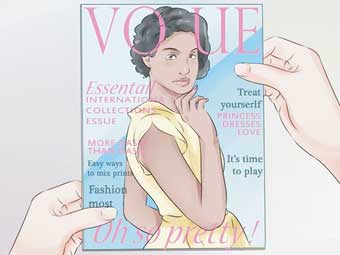
During the teen years, we are the most receptive to outside influences. Most of us don’t realize it but the media is the biggest influence on the way we think and feel. We get impressed by celebrities, media images and the way others look in magazines and movies. We might even start to compare ourselves with media images. All of this greatly affects how we feel about ourselves and our bodies.
Family and peer pressure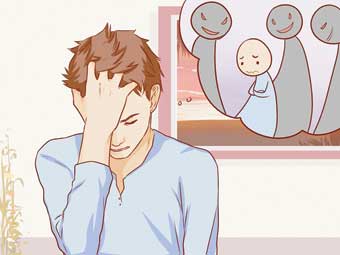
This may sound surprising but families can affect the way people feel. This is because some parents often focus on looking a certain way or weighing a certain amount. Family members might struggle with their own body image or criticize their kids’ looks. All of this can influence a person’s self-esteem, especially if they’re sensitive to comments. People may also experience negative comments and hurtful teasing about the way they look from classmates and peers. For instance, making fun of someone who is fat, skinny or dark by calling them chottu, mottu, lambu, etc can impact them negatively. Although these often come from ignorance on the peers’ part, sometimes these names stick to a person and cause irreversible damage to their self-esteem.
Reality check
Since so many people are getting affected by what they view on TV, it is extremely important to spread awareness about what goes on behind the scenes. First and foremost, none of the actresses or actors is perfect. Of course most of them are slim but they aren’t as skinny as they appear in movies and on magazine covers. For instance, actresses and actors tend to eat less during movie shoots but go back to eating normal once the shooting ends. Also, there are many tools like video editing and photoshop nowadays that can easily change the shape and size of everyone. Hence, the only image we are subjected to is that of ‘perfection’.
It’s also important to remember that celebrities and other known personalities who have a lot of money are prone to go for plastic surgeries to achieve ‘the look’ the media portrays as desirable. Body enhancements are a part of these surgeries and they actually have the power to transform the looks of a person. Never forget, the lives of these stars revolve around their faces and bodies since that’s what has made them famous. This is why they are able to maintain such incredible appearances. Dieting and working out can give us celebrity-like bodies is the idea promoted by the media, but this doesn’t usually happen when people start to exercise. The fact is, many people aren’t aware of the existence of pre/workouts, fat burners, etc. used by many celebrities. Pre-workouts are supplements that give extra energy to help one achieve their workout goal, whereas fat burners are supplements that trigger fast fat loss in individuals. Hence, it’s illogical to believe that we can be as thin and toned as celebrities in just a few months. The target can be achieved in a year or so but it’s important to focus and not to suffer from low self-esteem.
Positive body image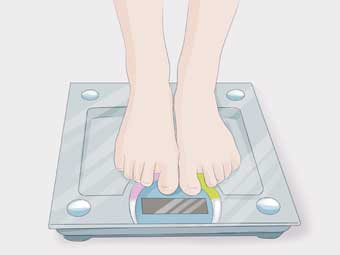
It may seem tough to stay motivated and confident in light of all the media exposure, but you can definitely change your quality of life just by being positive. Here’s what can help you in achieving a positive body image:
- Recognize that your body is your own, no matter what shape or size it comes in. Try to focus on how strong and healthy your body is and the things it can do, not what’s wrong with it or what you feel you want to change about it. If you’re worried about your weight or size, check with your doctor to find out if things are okay or not. It’s no one’s business but your own what your body is like. Ultimately, you have to be happy with yourself.
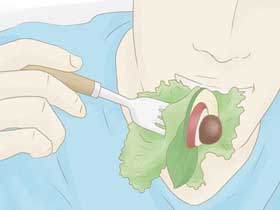 Develop a clear, true perception of your shape and try to see yourself as you really are. Celebrate and appreciate your natural body shape and understand that physical appearance says very little about the character and value of a person. Lastly, proudly accept your unique body and refuse to spend an unreasonable amount of time worrying about food, weight, and calories. If you have a positive body image, you will probably like and accept yourself the way you are, even if you don’t fit some media ‘ideal’. This healthy attitude allows you to explore other aspects of growing up, such as developing good friendships, becoming more independent, and challenging yourself physically and mentally.
Develop a clear, true perception of your shape and try to see yourself as you really are. Celebrate and appreciate your natural body shape and understand that physical appearance says very little about the character and value of a person. Lastly, proudly accept your unique body and refuse to spend an unreasonable amount of time worrying about food, weight, and calories. If you have a positive body image, you will probably like and accept yourself the way you are, even if you don’t fit some media ‘ideal’. This healthy attitude allows you to explore other aspects of growing up, such as developing good friendships, becoming more independent, and challenging yourself physically and mentally.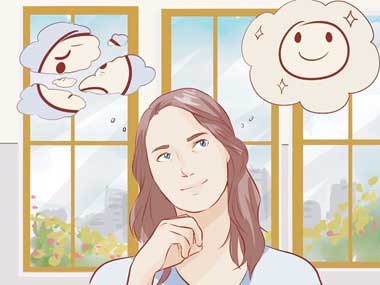
- Identify which aspects of your appearance you can realistically change and which you can’t. Humans are not perfect; it’s what makes each of us unique and original! Everyone (even the most perfect-seeming celeb) has things that they can’t change and need to accept like their height, for example. Remember: “Perfect people aren’t real, real people aren’t perfect.”
- If there are things about yourself that you want to change, do this by setting goals for yourself. If you want to get fit, make a plan to exercise every day and eat healthy. Then keep track of your progress until you reach your goal. Meeting a challenge you set for yourself is a great way to boost self-esteem!
- Try building your self-esteem by giving yourself three compliments every day. While you’re at it, every evening list three things in your day that really gave you pleasure. It can be anything from the way the sun felt on your face, the sound of your favourite band, or the way someone laughed at your jokes. By focusing on the good things you do and the positive aspects of your life, you can change how you feel about yourself.